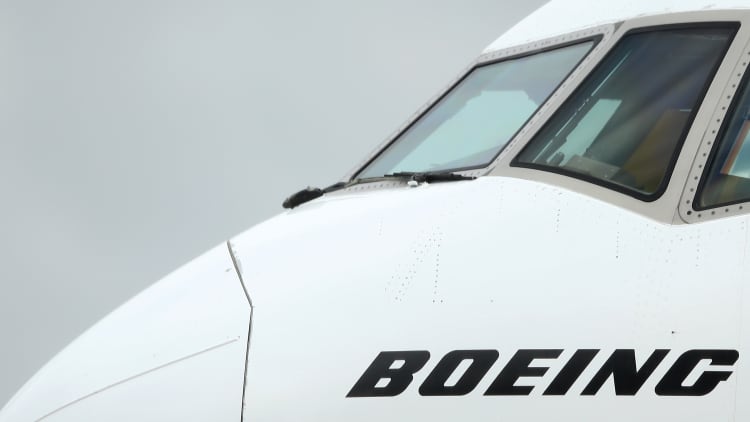Federal aviation regulators say the recertification process for Boeing's troubled 737 Max jets isn't being held up over concerns that the average pilot isn't strong enough to turn an emergency crank on the plane.
The Wall Street Journal reported Wednesday that the review process was being delayed, at least in part, over the difficulty in operating the plane's trim wheel system, which is a manual crank that turns a horizontal panel on the aircraft's tail to change the angle of the plane's nose.

A spokesman for the Federal Aviation Administration said it has been a known issue the agency is examining, but it does not expect it to delay the plane's return to service.
In emergency situations, like high speeds and steep angles, turning that crank can require a lot of physical force to operate. The Journal reported that regulators are concerned about whether female pilots — who typically tend to have less upper body strength than men — might struggle to turn the crank in emergencies.
The system is also used in an earlier version of jetliner, the 737 NG. The NG is widely used with about 6,300 planes being used by 150 airlines, mostly on short-and-medium range flights.
Neither Boeing nor regulators anticipate design or equipment changes as a result from the review, the Journal said, citing people familiar with the issue.
The global Max fleet was grounded in March following two fatal crashes a malfunction of the plane's automated flight-control system, called MCAS, was implicated. The crashes killed 346 people combined.

The FAA released a statement last week, saying the agency was "aware that Boeing Co. is working with manufacturers of Boeing 737 MAX and NG simulators to adjust the fidelity of the stabilizer trim wheel. The FAA will make sure that all FAA-qualified simulators are properly modeled and will reproduce representative forces on the trim wheel during all phases of flight."
Boeing said in a statement that it's "providing global regulators whatever information they need."


